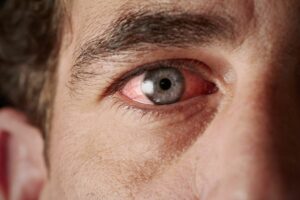For some women, their monthly period is regularly preceded by pain and
suffering. Premenstrual syndrome can induce a gamut of unpleasant
physical symptoms, including headaches and migraines, bloating,
insomnia, fatigue and pain. Emotional changes, such as mood swings and
episodes of hostility and anger, often accompany these symptoms. While
women may find some relief by taking medication and making lifestyle
changes, but symptoms may also be relieved with medical marijuana if
lifestyle changes are not enough.
PMS and Hormones
PMS symptoms occur one to two weeks before the start of a period and
sometimes symptoms continue through the period. While the cause of PMS
is not certain, hormonal fluctuations appear to play an important role.
Changes in hormone levels affect brain
chemistry,
and because cannabinoids from medical cannabis mimic the
endocannabinoid
system of the
body, research indicates that medical marijuana may help combat some PMS
symptoms.
How Cannabinoids Work
In 2009, Josee Guindon and Andrea G. Hohmann of the University of
Georgia published a summary of research on the endocannabinoid system
and pain in “CNS
& Neurological Disorders – Drug Targets.” Results show that cannabinoids
closely resemble anandamide, one of the body’s natural endocannabinoids
that turns on nerve receptors affecting movement, nausea and other
functions. Because of this resemblance, researchers are studying whether
the cannabinoids in medical marijuana have similar effects in the body.
The focus of research has been on two specific cannabinoids,
tetrahydrocannabinol (THC) and cannabidiol (CBD). THC is the cannabinoid
responsible for the feelings of euphoria marijuana users get, while CBD
relaxes the mind and body.
Cannabis and PMS Symptoms
The highest concentration of cannabinoid receptors is in the parts of
the brain that affect pleasure, sensory perception, and movement. It’s
thought that cannabidiol (CBD), may suppress the
headaches and
pain of PMS, and the relaxing effect makes it useful for treating
insomnia and sleeplessness.
In studies of cancer patients, THC has been shown to reduce
nausea
and stimulate appetite. It may also inhibit the release of serotonin, a
cause of migraines. THC can also help sufferers avoid the unpleasant
side
effects
of triptans such as dizziness and an “out of body” sensation that some
people experience.
The American College of Obstetricians and Gynecologists reports that 5
to 10 percent of menstruating women suffer significant
impairment because
of PMS. These women welcome more, and better, treatments for their
symptoms, and medical marijuana may just be the answer.






